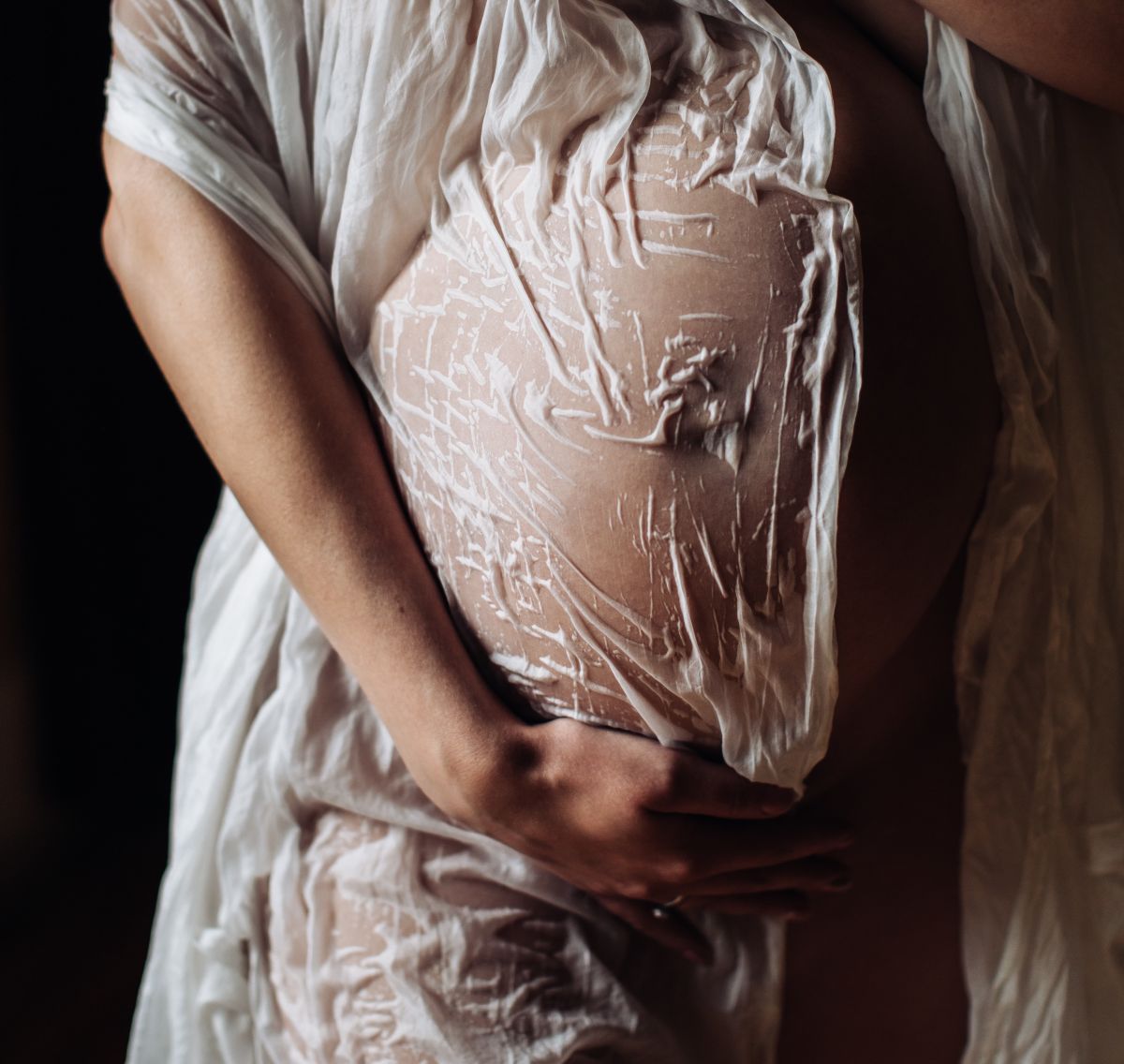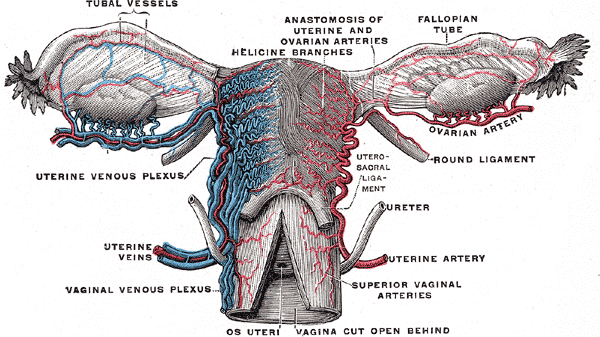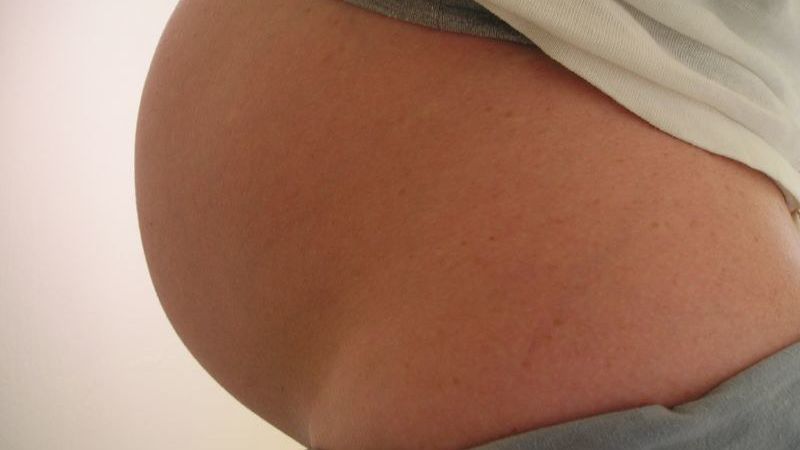Round Ligament Pain

Round ligament pain is caused by the stretching and pulling of the two round ligaments located on either side of the uterus, which support not only the uterus, but the Fallopian tubes, ovaries, and a growing pregnancy.
Round ligament pain generally lessens after delivery due to the immediate relief from a smaller uterus; however, they may remain loose/weak for several weeks postpartum.
Although this pain is common, many other conditions during pregnancy can cause abdominal/groin pain, and women should call their HCP any time they experience lower abdominal pain so other potentially more serious causes can be ruled out.
Background

Prior to pregnancy, the round ligaments vary from 3 to 5 millimeters (mm) in diameter and 10 to 12 centimeters (cm) in length; during pregnancy and under the influence of hormones, these ligaments undergo considerable stretching and increase significantly in both length and diameter.
Causes
Stretching of the ligaments from the growing uterus can cause abdominal/groin pain starting around the second trimester as the uterus begins to come out of the pelvic area; this pain is sometimes mistaken for preterm contractions. It is believed the pain may be specifically caused by the tightening/spasm of the ligaments or irritation of nearby nerve fibers.
Symptoms
Round ligament pain can feel like a sharp, stabbing, or aching pain that travels from inside the abdomen down into the groin and can occur from laughing, sneezing, coughing, changing positions too quickly, and even getting out of bed. The pain may occur most often on the right side as the uterus often rotates clockwise.
The round ligaments can also have varices (dilated veins). Round Ligament Varices (RLV) are conditions where veins become tortuous and twisted and can cause groin swelling and pain.
Veins in the pelvic area can become weaker during pregnancy due to venous insufficiency and a growing uterus putting weight on the inferior vein cava (IVC). These veins cannot drain blood as efficiently as prior to pregnancy and can therefore swell and twist.
Usually, the pain associated with the round ligaments is temporary, resolves after delivery, and can be relieved through rest, slower movements, and lying on the left side (takes pressure off the IVC).
After pregnancy, the hormonal effects and the heavy uterus are no longer affecting the ligaments, which causes immediate relief upon delivery. However, the ligaments are still vulnerable to quick movement which can cause pain since the ligaments remain loose for several weeks.

Action
Women should always call their HCP any time they have lower abdominal pain during pregnancy; women should not assume the cause of their pain is round ligament pain, although it could be. Many other conditions can cause abdominal pain and/or mimic round ligament pain and it is better for those possibilities to be ruled out.
Women should also call their HCP immediately if severe pain is felt, to include in the lower back, as well as painful urination, bleeding/spotting, or the woman has a fever, chills, and/or nausea and vomiting. Any of these symptoms would rule out round ligament pain and could indicate (more rarely) preterm labor, appendicitis, gallstones, urinary tract infection, or placental problems.
To relieve and prevent round ligament pain, it is recommended that women should:
Use pillows to help support the abdomen, back, and legs
Try pelvic (hip) tilt exercises which may be effective at strengthening the ligaments and relieving pain
Move more slowly, brace the abdomen, and crunch up toward the pain to lessen the pull of the movement; try bracing prior to sneezing, coughing, and laughing
Occasionally lie on the left side to relieve pain, taking pressure off the IVC, and relieving swelling
Engage in physical activities such as walking, yoga, and swimming which can strengthen the core and back
Consider acetaminophen for severe pain, under the direction of their HCP
Try warm compresses to the area
Avoid prolonged standing and heavy lifting
Try a warm bath
Women should also consider sharing and submitting their experience below regarding round ligament pain during pregnancy. This can help other women learn additional perspectives regarding this concern and how to potentially manage symptoms.
Partners/Support
When round ligament pain occurs, it can be sudden, unexpected, fast, and intense, especially if it was due to a position change or cough/sneeze. The woman may need to lie down right away to ease the discomfort.
Partners and family members should help women get off the floor, couch, bed, or chairs later in pregnancy to help her avoid sudden shifts in movement that can strain the ligaments.
Resources
Anatomy, Abdomen and Pelvis, Uterus Round Ligament (StatPearls [Internet])